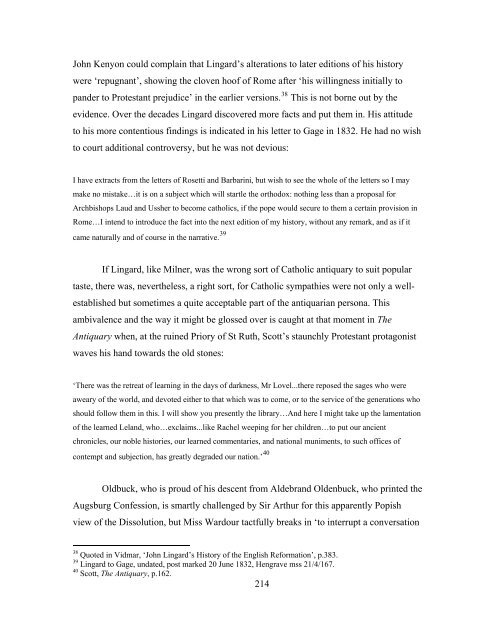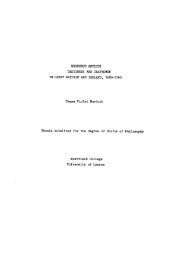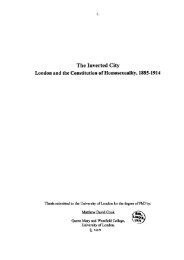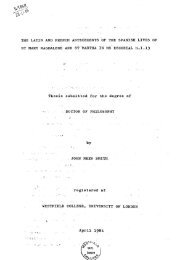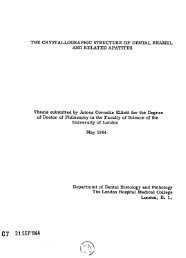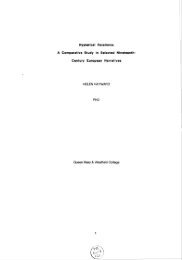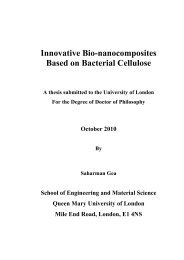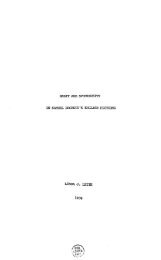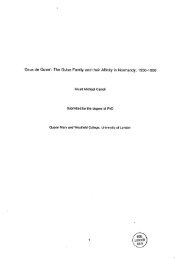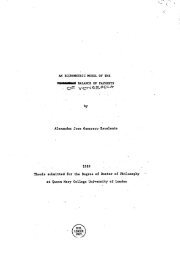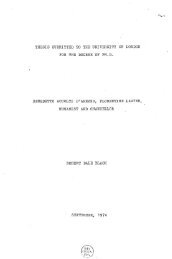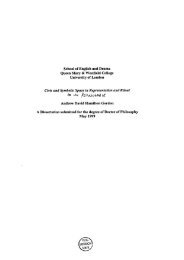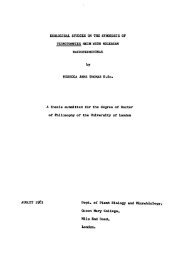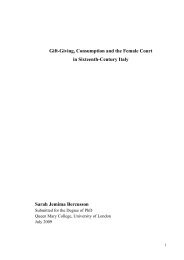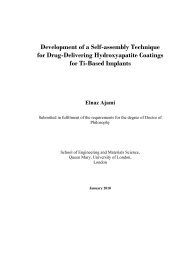Antiquaries in the Age of Romanticism: 1789-1851 - Queen Mary ...
Antiquaries in the Age of Romanticism: 1789-1851 - Queen Mary ...
Antiquaries in the Age of Romanticism: 1789-1851 - Queen Mary ...
You also want an ePaper? Increase the reach of your titles
YUMPU automatically turns print PDFs into web optimized ePapers that Google loves.
John Kenyon could compla<strong>in</strong> that L<strong>in</strong>gard’s alterations to later editions <strong>of</strong> his history<br />
were ‘repugnant’, show<strong>in</strong>g <strong>the</strong> cloven ho<strong>of</strong> <strong>of</strong> Rome after ‘his will<strong>in</strong>gness <strong>in</strong>itially to<br />
pander to Protestant prejudice’ <strong>in</strong> <strong>the</strong> earlier versions. 38 This is not borne out by <strong>the</strong><br />
evidence. Over <strong>the</strong> decades L<strong>in</strong>gard discovered more facts and put <strong>the</strong>m <strong>in</strong>. His attitude<br />
to his more contentious f<strong>in</strong>d<strong>in</strong>gs is <strong>in</strong>dicated <strong>in</strong> his letter to Gage <strong>in</strong> 1832. He had no wish<br />
to court additional controversy, but he was not devious:<br />
I have extracts from <strong>the</strong> letters <strong>of</strong> Rosetti and Barbar<strong>in</strong>i, but wish to see <strong>the</strong> whole <strong>of</strong> <strong>the</strong> letters so I may<br />
make no mistake…it is on a subject which will startle <strong>the</strong> orthodox: noth<strong>in</strong>g less than a proposal for<br />
Archbishops Laud and Ussher to become catholics, if <strong>the</strong> pope would secure to <strong>the</strong>m a certa<strong>in</strong> provision <strong>in</strong><br />
Rome…I <strong>in</strong>tend to <strong>in</strong>troduce <strong>the</strong> fact <strong>in</strong>to <strong>the</strong> next edition <strong>of</strong> my history, without any remark, and as if it<br />
came naturally and <strong>of</strong> course <strong>in</strong> <strong>the</strong> narrative. 39<br />
If L<strong>in</strong>gard, like Milner, was <strong>the</strong> wrong sort <strong>of</strong> Catholic antiquary to suit popular<br />
taste, <strong>the</strong>re was, never<strong>the</strong>less, a right sort, for Catholic sympathies were not only a wellestablished<br />
but sometimes a quite acceptable part <strong>of</strong> <strong>the</strong> antiquarian persona. This<br />
ambivalence and <strong>the</strong> way it might be glossed over is caught at that moment <strong>in</strong> The<br />
Antiquary when, at <strong>the</strong> ru<strong>in</strong>ed Priory <strong>of</strong> St Ruth, Scott’s staunchly Protestant protagonist<br />
waves his hand towards <strong>the</strong> old stones:<br />
‘There was <strong>the</strong> retreat <strong>of</strong> learn<strong>in</strong>g <strong>in</strong> <strong>the</strong> days <strong>of</strong> darkness, Mr Lovel...<strong>the</strong>re reposed <strong>the</strong> sages who were<br />
aweary <strong>of</strong> <strong>the</strong> world, and devoted ei<strong>the</strong>r to that which was to come, or to <strong>the</strong> service <strong>of</strong> <strong>the</strong> generations who<br />
should follow <strong>the</strong>m <strong>in</strong> this. I will show you presently <strong>the</strong> library…And here I might take up <strong>the</strong> lamentation<br />
<strong>of</strong> <strong>the</strong> learned Leland, who…exclaims...like Rachel weep<strong>in</strong>g for her children…to put our ancient<br />
chronicles, our noble histories, our learned commentaries, and national muniments, to such <strong>of</strong>fices <strong>of</strong><br />
contempt and subjection, has greatly degraded our nation.’ 40<br />
Oldbuck, who is proud <strong>of</strong> his descent from Aldebrand Oldenbuck, who pr<strong>in</strong>ted <strong>the</strong><br />
Augsburg Confession, is smartly challenged by Sir Arthur for this apparently Popish<br />
view <strong>of</strong> <strong>the</strong> Dissolution, but Miss Wardour tactfully breaks <strong>in</strong> ‘to <strong>in</strong>terrupt a conversation<br />
38<br />
Quoted <strong>in</strong> Vidmar, ‘John L<strong>in</strong>gard’s History <strong>of</strong> <strong>the</strong> English Reformation’, p.383.<br />
39<br />
L<strong>in</strong>gard to Gage, undated, post marked 20 June 1832, Hengrave mss 21/4/167.<br />
40<br />
Scott, The Antiquary, p.162.<br />
214


